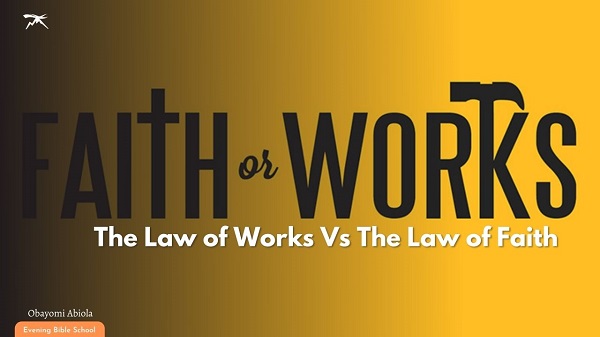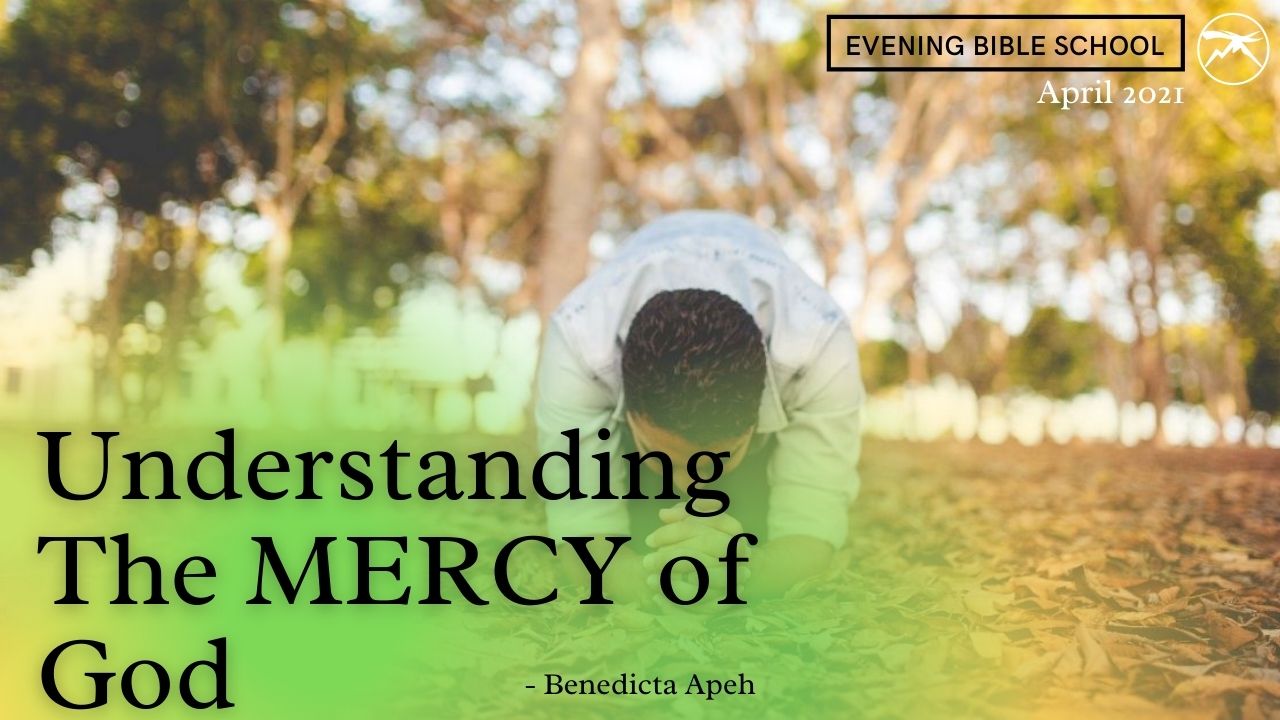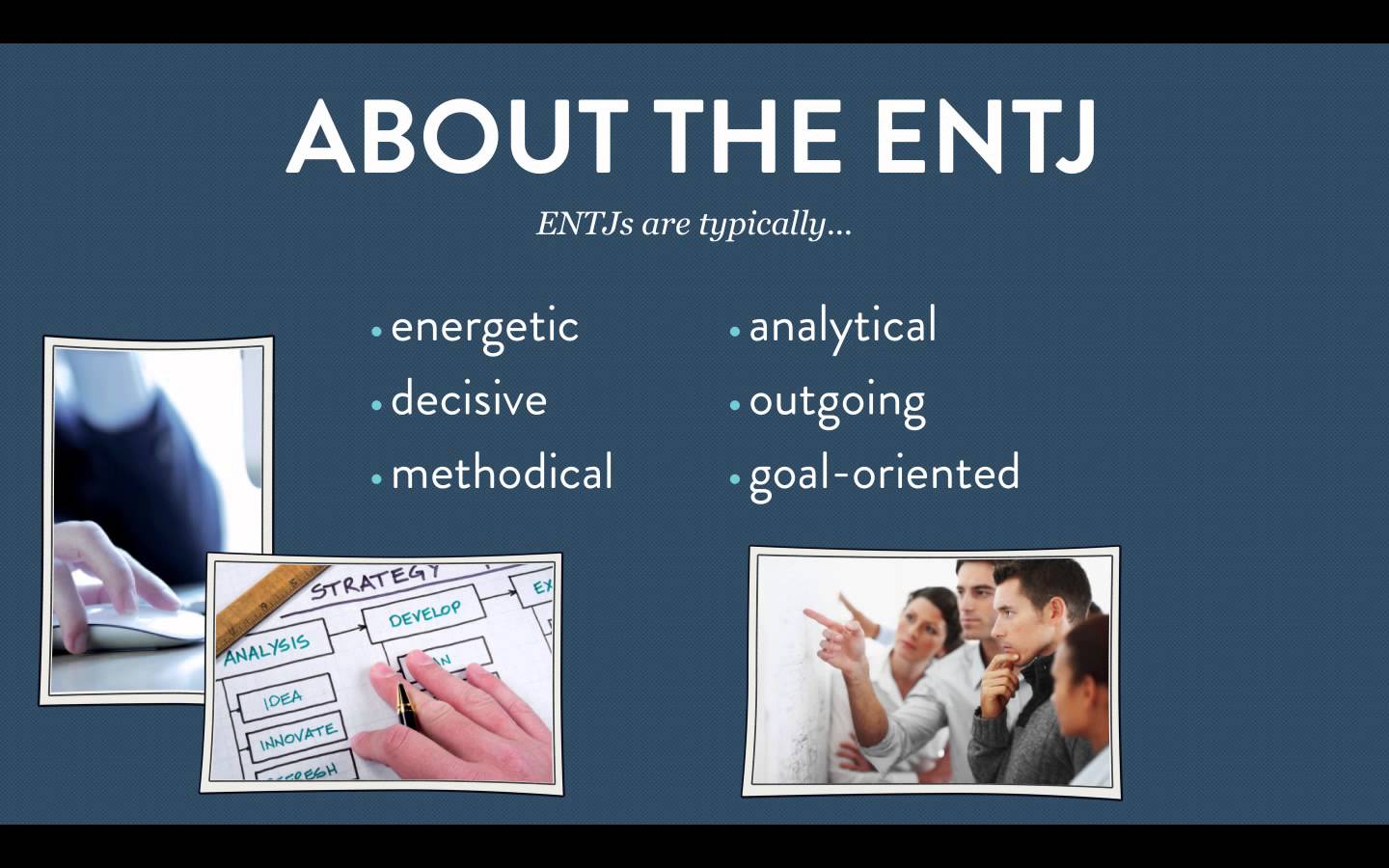I want to share with us in this article what has been titled, The Law of Works versus the Law of Faith. Now, these are terminologies that we are familiar with, they are not strange to us, we just want to look at certain things under this title and enlighten ourselves so that we can better walk and understand what it really means to serve God in the capacity of faith. And that's just the basic understanding surrounding this title. So, we are going to be hearing certain things that we've heard before and we are going to be hearing certain things that the Holy Spirit is going to be revealing to us even afresh.
Now permit me to start on this particular note. There are two broad laws that governs people's acceptability in the sight of God. Two broad scripturally documented laws that govern people's acceptability in the sight of God. Now, what do I mean by that? It means that if we are going to be acceptable in the sight of God, there are two ways through which that can happen. Now, the very first of those laws is what is known as the law of works. And the second one is what is known as the law of faith. So, through these particular laws, people usually struggle and find a means or a method through which by which they can be acceptable in the sight of God. Now let's take a look at them one after the other so that we can have an understanding of what we are talking about.
Now, what exactly is the law of works? What does it connote? What does it mean when we talk about the law of works? You see, the law of works simply talks about one thing, and I don't want us to forget this very one thing because it is very germane in this discussion. When we are talking about the law of works, it talks about one thing and that very thing is called legalism. Now the word “legalism” is from the word, ‘legal’. I believe we know what it means when something is legal, right. You know that's talking about law times. So, when we are talking about the law of works, it simply talks about what is known as legalism. Now somebody may be thinking and wondering, what exactly does legalism mean, in this context? What exactly does it connote?
Now, let me show us what it means. Legalism talks about an idea, or a system through which people try to secure the righteousness of God through good works. When you hear the word legalism, it simply talks about an idea, or a system through which people try to secure the righteousness of God or the approval of God through good works. Now, in case you are wondering, is there something really wrong with good works? Absolutely, there is nothing wrong in doing good works. But you see, there are two ways in which you can do good works. Scripturally there two ways by which you can carry out good works.
Number one, you can carry out good works based on legalism, based on religious mindset; and you can carry out good works based on faith. So, don't have that idea that there is something wrong with good works in this context, no! The way a manner in which that works is carried out may be wrong, but the works in itself is not bad. Look at this example, Ephesians 2:10, apostle Paul said, “For we are God's workmanship created in Christ Jesus unto good works.” So, what does that tell us? It means there is nothing wrong in doing good works. But something may be wrong in the way and manner in which it is done. Look at this example, a man who is not born again, who is very rich, he does not know Christ, He does not regard God, such a man can carry half of his goods and give to the poor. Now what he did, is he bad? No, that's good works. But in the purview of God, will that action make him acceptable with God? No.
So, good works is not wrong in itself. But the process, the manner in which it is being done, could be wrong, it could be faulty, the Bible talks about faulty foundation, it says, if the foundation be destroyed, the righteous cannot do anything. So, when we are talking about legalism, it is an idea or a system through which people try to secure the approval of God, the righteousness of God through good works. Now, this is the mindset of a legalist or anyone who has that thinking. A legalist believes that what I do is what makes me to be approved by God. What I do, the works, the things that I do that I think they are good in my home capacity; these are the things that commend me to God. This is the whole idea behind the law of works and legalism.
Now, let's go to the Scripture and leave explanation a bit for now. Two Scriptures in the Bible, Jesus gave us an example of what legalism is. The first one is Luke chapter 11 and we are going to read from verse 37-41. Please pardon me, I want to show us this particular verse in the Amplified Version because that was the version that gave me what I was looking for. Jesus gave us an example of what legalism is, or what the works of the law is, look at what it says.
“Now after Jesus had spoken, a Pharisee asked Him to have lunch with him. He went in [the Pharisee’s home] and reclined at the table [without ceremonially washing His hands] …”
Now, this was Jesus's action in the house of that man. The Bible says Jesus reclined in his house. In other words, Jesus felt at home, he was relaxed. Even though the man was a Pharisee, there was no problem. After all, Jesus was sent to both the Jews and the Pharisees and everyone. So, Jesus was relaxing. But the problem is that Jesus did not do the tradition. Now, what was the tradition in this context, if you want to dine in the house of a Pharisee, it is expected of you to wash your hands, and not even in the house of a Pharisee. It is just culture and tradition that when you want to eat, that you wash your hands. Now for the sake of the fact that it is even healthy, it is something that should be done. But apart from health’s sake, the Pharisees see that as a law, it is something that must be done. So, Jesus entered that man's house, but He did not wash his hands. Jesus was not about that.
Verse 38 says: “The Pharisee noticed this and was surprised that Jesus did not first ceremonially wash before the meal. 39 But the Lord said to him, “Now you Pharisees clean the outside of the cup and plate [as required by tradition]; but inside you are full of greed and wickedness...”
Now, did we understand that? Jesus said, you Pharisees, on the outside, you guys are ceremonious, you are good. You follow traditions, you follow culture. As a matter of fact, you people uphold the law. And by virtue of the fact that you uphold the law, you are deemed righteous. But on the inside, He says you are filled with wickedness and greed. So, Jesus was saying, ceremonially washing our hands is not the problem. Now look at something here very quickly. You see, one of the things religions does, or legalism does, is that it makes you look good on the outside. But it does not commend your heart to God. Now, how many rich people you know, wealthy people today, who are doing charity that people don't love? Now, people love them. But one thing is fundamentally wrong and it is their heart, even though it is not right with God. But on the outside, they appear good. They appear nice. They appear generous. They appear sanctimonious, people honor them, people respect them. As a matter of fact, in those days, they were the standard for righteousness. But Jesus broke the heart of that man. He says on the outside, you people strive so much to look good, but on the inside of you is greed and his wickedness. Do we understand what Jesus was saying?
Now look at verse 40, Jesus said again to them: “you foolish ones [acting without reflection or intelligence]! So, Jesus was abusing them further. He says there is no intelligence in that system, in that idea, the idea that makes you look good on the outside, but makes you terrible on the inside. He says there is no reflection or intelligence in that. Goodness should come from the heart and not from the external. He said the intelligence that that system produces is not right with God, it makes the heart very wrong.
“Did not He who made the outside make the inside also? 41 But give that which is within as charity [that is, acts of mercy and compassion, not as a public display, but as an expression of your faithfulness to God] …” It says usually, what comes from the heart is where the intelligence in serving God is. It is that that commends you to God is, that is where the faithfulness of God comes from, not the externalities Jesus said, in other words, there is no intelligence on what you do on the outside but that does not commend your hearts to God. The actions on the outside are good, but they don't commend you to God. It says where the action is, and the intelligence is, is the heart of charity that come from within and that commends you to the faithfulness of God.
It says further: “and then indeed all things are clean for you.” So, Jesus was saying in summary, that cleanliness comes from within, not by ceremonially washing of hands, but a heart that commends you to God, that is the true cleanliness.
Luke chapter 18, let us look at this one. In case we did not get all those explanations. Luke chapter 18, we are going to read from 9-14. Jesus also is the one speaking in this place. The Bible says:
Also, He spoke this parable to some who trusted in themselves that they were righteous, and despised others: He was talking about the Pharisees here, because in those days, the Pharisees are the most righteous set of guys, because they were the ones that kept the law. They were the custodian of the law, and the Prophet and the Torah and all those things that you know, he says so, some despise others, because they thought that they are righteous. Look at what Jesus said. He mentioned their name in verse 10. It says: “Two men went up to the temple to pray, one a Pharisee and the other a tax collector. 11 The Pharisee stood and prayed thus with himself…” Now this is a good example of a legalistic man, a religious man, somebody who practices the law, the Pharisees stood before God. And these were his words. He says: ‘God, I thank You that I am not like other men—So, he classified those other men that he was talking about. He gave God examples of those other men. It says, number one, they were extortioners. He was not an extortioner, so, he's good. He says they are unjust. So, he believes he's a just man, because he doesn't break the law. Do we understand? He says, others are adulterers or even as this tax collector… This tax collector is even an unrighteous man. God, in case I am giving you examples that are way beyond your purview. Look at this man standing beside me, he is a sinner, he is not a righteous man.
Verse 12, look at what it says further. It says: I fast twice a week; I give tithes of all that I possess.’ 13 And the tax collector, standing afar off, would not so much as raise his eyes to heaven, but beat his breast, saying, ‘God, be merciful to me a sinner! Now I was thinking about it, a tax collector was enabled by the law to collect taxes. So, what made this man a sinner? What made him unjust before God? Was he trying to play God? I was thinking about it. No. He was more legalistic. He called a spade a spade and not a shovel. Be merciful unto me a sinner. Jesus said, 14 I tell you, this man went down to his house justified rather than the other…” who was a legal luminary, a Senior Advocate of the Jews. The sinner went home justified than that other man. Because that other man thought, God on the basis of all these things that I've mentioned, you should give me a brand-new house. On the basis of these thing that I have mentioned, you should command my husband or my wife to come. I'm a Christian. I'm a believer. I read the Bible; I fast I go to fellowship. I paid my tithes and offerings, I give things to my pastors and men of God around me, what else are you looking for?
That's how many people are in the body of Christ. But the other man acknowledged the problem and he nailed it on the head. And Jesus said, that man went home saved. That's another word for being justified. He left the presence of God, justified, in other words, he received and answer from God. He didn't come on the basis of entitlement mentality. He came on the basis of a man, even though capable, but felt incapable in the presence of God. The law of works.
Let me show us one more Scripture on that. Apostle Paul gave us another example of how legalism plays out in religion. Colossians chapter 2, from verse 20-23. See how Paul put it. It says:
Therefore, if you died with Christ from the basic principles of the world, why, as though living in the world, do you subject yourselves to regulations— Now, you must never forget from this very point, that it was not regulations that got any man saved. It was not the rules and regulations that you kept that made Jesus come and die for you. Were there rules? No! So, Paul was showing them that even though you guys have died to the law, how come you subject yourself to regulations? The reason why you rise and fall rise today and for tomorrow, rise and fall is because you hold on to regulations, Paul was simply showing that there is something that is missing. And we're going to find out what was missing.
Look at verse 21-23, Paul showed us the regulations: 21 “Do not touch, do not taste, do not handle,” 22 which all concern things which perish with the using—according to the commandments and doctrines of men? 23 These things indeed have an appearance of wisdom in self-imposed religion, false humility, and [n]neglect of the body, but are of no value against the indulgence of the flesh.” Do you know why many believers rise and fall? This is the problem. Because you wonder how come a believer is a fornicator? Because he has said in himself, I can never do it, me? No way! I can never do it.
Now, have you discovered that many people who profess to be Christians are still the ones going about messing up? This is the problem. He says, now that you claim you have died with Christ and then he has justified you. He says how come you now live your life on rules and regulations. Because the moment you say you are not going to do certain things in the flesh, that is when you start doing that thing. This is legalism, what I think I can do to please God. It is not borne out of faith. It is borne out of works, self imposed rules and regulations. And this is the problem.
Now let's look at the law of faith and then we are going to see where the clash is. Now let me show us what the law of faith talks about very briefly. The law of faith talks about a belief system that righteousness came through faith and that we receive God's approval by faith. What is the law of faith talking about? It is talking about a belief system, that righteousness came through faith, number one, and that we receive, that approval of God that we are yearning for, that we are looking for; we receive it by faith, and not by works. So, what does that mean? Many things that we enjoy since we became Christians and believers, we enjoy them on the basis of faith. That's what the law of faith is talking about. Whatever it is that you think you are enjoying in God right now, is as a result of what Christ has done for you and it's as a result of you imposing or reposing your faith in what Christ has done.
So, where is the works in that place? No. The only work in that place is me believing. So, the law of faith simply shows us that approval of God comes on the basis of faith. So pleasing God is by faith. Walking on in this world, as a believer is not by works but it is by faith. Let me show us a Scripture in Romans chapter 10, we are going to read from verse 5-10. This is how Apostle Paul conveyed it to the Roman people who are the time. Paul said:
“For Moses writes about the righteousness which is of the law…” So, we know that there is a kind of righteousness that comes from the law. Paul said, Moses wrote about it. And we also know because we've read about it. It says: “The man who does those things shall live by them.” So, anyone who follows the righteousness or the works of the law, he says, they we do and live by them. So, you are commandeered here and there by the law, what the law says. Now look at verse 6: But the righteousness of faith speaks in this way, “Do not say in your heart…” There is something in this place that you must not forget. It says “Do not say in your hearts.”
So, the first dichotomy between the law of works and the law of faith is that the heart is involved in one, the law of faith is commandeered by the heart. The law of works is commandeered by the externalities, that is the first dichotomy, because Paul was now showing us. It says: But the righteousness of faith speaks in this way, “Do not say in your heart, ‘Who will ascend into heaven?’” (That is, to bring Christ down from above) 7 or, “‘Who will descend into the abyss?’” (That is, to bring Christ up from the dead). 8 But what does it say? “The word is near you, in your mouth and in your heart” Are we seen the operation of the law of faith? Please don't forget that the law faith is about the heart. Do not forget. It says: The word is near you, in your mouth and in your heart” (that is, the word of faith which we preach): 9 that if you confess with your mouth the Lord Jesus and believe in your heart that God has raised Him from the dead, you will be saved. 10 For with the heart one believes unto righteousness, and with the mouth confession is made unto salvation.
The word “heart” is mentioned four times. What does that connote? It simply means the law of faith operates in the heart. Do we understand that? The law of faith takes place in the heart. We cannot please God outside of faith. That's what the law of faith is talking about. We cannot please God outside of faith. So, the law of works talks about externalities. But the law of faith is inside, it is of the heart.
Now let's look at very briefly, as we begin to tidy up everything, how does the law of works and the law of faith clash? Where does that clash really comes from? You know, we are looking at the law of faith versus the law of works. Where exactly does that clash come from? Let's see the book of Romans chapter 3. Let's look at where the problem is and why the two laws cannot operate at the same time. The two are parallel lines that can never meet. Romans chapter 3 from verse 21, Paul said:
But now…” Now the now he's talking about is this dispensation. It says: But now the righteousness of God apart from the law is revealed, being witnessed by the Law and the Prophets…” Did we see that? Paul was saying, even though up until the time that Jesus came, people had been struggling with the law. People have been trying to keep the law. But that law does not bring about salvation. It does not commend anyone to God. But the moment Christ came, and he did the work of redemption, Paul said, Now, the righteousness of God apart from the law, so the righteousness of God that we're talking about, was not a product of the law. It says it is apart from the law, even though it is witnessed by the prophet, by the law and by the prophet, but that righteousness was never produced by the law. The righteousness of God that we are talking about, cannot be produced by the law of works. That's what Paul is saying. It says the righteousness of God is apart from the law. Now, please pay attention.
There are two powerful truths that I want to show us in that verse 21. As I was meditating, two things came into my spirit and I wrote them down, and I want to share it with us. I believe it is going to bless us. Now, what are the truths? Number one, Paul said, the righteousness that comes from God is not so that you can be perfect in keeping the law or become legalistic in your relationship with God. Paul was saying that this righteousness that you have received by faith is not so that you can continue to keep the law. This righteousness that you have received by faith is not made perfect in keeping the law. That's what he's saying. The righteousness that comes from God is not so that you can be perfect keeping the law or you become legalistic in your relationship with God.
Now, this is how I knew that truth. Romans chapter 10:4. Let us go back to that Scripture where we read, you will see it. That statement is not just born from a thin air, it is as a result of this Scripture: For Christ is the end of the law for righteousness to everyone who believes. So, you cannot receive the righteousness of faith, and then you think you'll be made perfect by keeping the law. He says Christ is the end of the law for that righteousness that everyone is seeking in the law. He says, the moment you receive Christ, that's the end of it.
So, what is the correlation between you having the righteousness of faith and then you are still legalistic in your relationship with God? It does not make a logical sense. Jesus said, through Paul, the end of that righteousness you are trying to keep the law and struggling with, you are looking for righteousness. He said, since Christ has come and then you have received him, he says that is the end. There is nothing like keeping the law again. You are now righteous.
Now look at the second truth. You see the righteousness that is produced by the law does not and cannot bring about perfection in the sight of God. That is the truth number two that we must know. The righteousness that is produced from that law, from that legal relationship that you think you can have with God can never, and will never bring about perfection in the sight of God, it will not get you approved before God. How do we know this? Isaiah chapter 64:6. See what the Bible says: “we all like an unclean thing and all our righteousness are like filthy rags.” Did we see that? The righteousness from the law does not produce the righteousness of God, the best you can do with that righteousness in the sight of God, the Bible says God sees it as a filthy rag.
So, why do you keep at it? It doesn't make sense. So, let's go back to that scripture. Romans chapter 3 and let us read from verse 22. Paul said further: even the righteousness of God, through faith in Jesus Christ, to all and on all who believe. So, the righteousness of faith came to us by believing, not by works, not by legalism, it is by believing. It says further: “For there is no difference; 23 for all have sinned and fall short of the glory of God, 24 being justified [g]freely by His grace through the redemption that is in Christ Jesus, 25 whom God set forth as a [h]propitiation by His blood, through faith, to demonstrate His righteousness, because in His forbearance God had passed over the sins that were previously committed, 26 to demonstrate at the present time His righteousness, that He might be just and the justifier of the one who has faith in Jesus.”
Please, who justifies you now? It says God! The same God that you are looking for approval from, saying God, please approve me now. You can see what I'm doing. You can see how I'm dying; doing all these things and all of that. It says that justification you are looking for is by faith, it came by faith. It says God Himself is the just and the justifier. Not your works, not legalism. God Himself, as a result of that faith that you have reposed in the finished work of Jesus Christ. It says, you are righteous, your righteousness is not 99.9%. Your righteousness is the righteousness of God. It cannot be quantified. It is whole. It is 100%. It is 1,000,000% Whatever it is. But let's go to verse 27. Paul now said something in verse 27. It says: Where is boasting then? It is excluded. By what law? Of works? No, but by the law of faith.
So, the righteousness of God that you have right now, you cannot boast in it that you made it happen. That's what Paul is saying. And this is where the clash is, between the law of works and the law of faith. The law of works brings about boasting, you know, yeah, we made it happen and all of that. But the law of faith, Paul said there is no boasting because you did not work for it. Jesus made it possible for you. That's what he's saying. It says: “Therefore, we conclude that a man is [i]justified by faith apart from the deeds of the law. 29 Or is He the God of the Jews only? Is He not also the God of the Gentiles?”
Now Paul was saying something in this place, that if were to be by legalism, if were to go by, you know, religious, and all of those things, he said, the Jews will be the only nation that God will save. The gentile nation will not be saved. If you read that Romans chapter 10 from verse one, you will see a lot of other things that Paul had said. He says where then is the circumcision? Who are those people that God circumcised from the beginning? God told Abraham, go and circumcise your foreskin. By this you will know that my covenant with you I will keep. He told him circumcise your foreskin and the foreskin of your children, and that became a covenant. And then from that Abraham up to the time, the Bible says God commanded, God gave the Jews, the Israelites, the oracles of God.
You see, God came through them to the earth. So, if there were to be boasting or if the law were to produce faith, there will never be any other nation that will have received God or Christ other than the Jews. They will have customized Jesus Christ and say, “na we get am, ulna nor go fit receive am until we approve it.” That's what the boasting he is talking about would have produced. But he says where then is the boasting? Because if were to be by boasting, the Jews should be the one ruling the whole religious world. But Paul demystifying them says it is not by boasting. This righteousness that we're talking about came by faith. And that is why gentiles could also participate.
How many prophets did God revealed Himself to at that time that came from Africa? Ask yourself, we will not benefit we will not be saved. So, Paul was showing them by saying: Is He not also the God of the Gentiles? Yes, of the Gentiles also, 30 since there is one God who will justify the circumcised by faith and the uncircumcised through faith. 31 Do we then make void the law through faith? Certainly not! On the contrary, we establish the law. Which law was he talking about? The law of faith, not of works, we don't establish the law of works. Because if it were to be by works, no other person will have access to salvation, only the Jews only. And that was why if you jump to Romans chapter four, Paul was now demystifying it further, he was showing them Abraham, how did Abraham become the righteousness of God? Is it by faith? Is it by works? He says, is by faith!
So where is the clash? You see, in the law of works, you can boast. But let me shock you that boasting does not commend you to God. But in the law of faith, when you know and realize that all that you have received, is on the basis of faith in God through Christ Jesus, then where is the boast? Are you the one that died? Are you the one that resurrected? It is Jesus. So, your boasting should be in him! Your boasting should be in that faith, that the righteousness that I'm boasting in, it is not of myself; it is of him. Now look at the conclusion. Paul said something. He said, “for we walk by faith, and not by sight.” We walk by faith! Now I wrote something. In other words, Paul was saying that we please God, by faith, and not by sight.
In other words, Paul was saying, we became righteous by faith, and not by sight. In other words, Paul was saying, we serve God by faith, and not by sight. In other words, Paul was saying, we prayed to God by faith, and not by sight. In summary, everything we do in this kingdom of God is by faith, and not by sight. No man can receive justification by the law of the works, no, works does not commend us to God, what commend us to God is faith. So, let me ask us; which one is more convenient, to walk by the law of works or to walk by the law of faith? It is more convenient or repose my confidence in that faith than to make it happen by myself. It's not convenient to walk it out. The reason why you have been struggling is because you are trying to walk it out. No, you are legalistic.
It is more convenient to walk by faith and not by sight. If we're looking for people who should boast, they are the likes of Apostle Paul. You know there was a time in one of our meetings where the vessel of utterance was talking about the kind of glory that was awaiting Apostle Paul in heaven. And I sat down I was thinking about it and came to this conclusion that what more glory could we not see of him on earth? Do you know how many people that read the book of apostle Paul? Over 2 billion people are reading his books. What more glory are you looking for than that? That you wrote books and people are reading it? That's even apart from the glory in heaven, even the glory here on earth we could see it.
So, if we are looking for people who should boast they are the likes of Apostle Paul but he says no, there is no boasting, because whatever it is that they made happen, was not of works, it is by faith. And that is why he said we walk by faith and not by sight. It is more convenient. It is easier to live by faith than to live by sight.
Thanks for the gift of your time, Obayomi Abiola Benjamin!
Feel free to share your thoughts or testimony in the comment box below. I promise to respond as soon as possible!















































What Do You Think About This Article? Share Your Comment
Please login to post a comment!